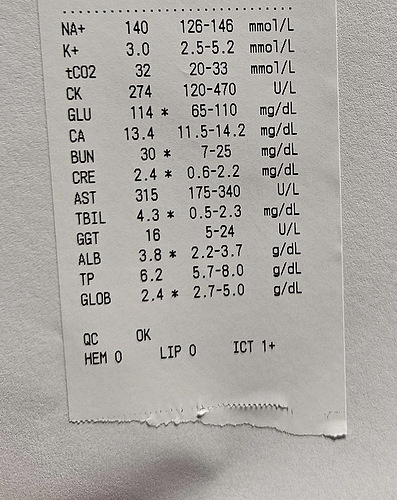One of my horses seems to have something going on with his kidneys. The vet school ran his blood as a standard pre-op procedure (bone chip removal), and it was noted that his creatinine and BUN levels were mildly elevated.
Creatinine was 1.8 mg/dL (high end of normal is apparently 1.7?). They ran fluids overnight which resulted in 1.7mg/dL creatinine. Following surgery (and more fluids!), he tested at 2.1 mg/dL creatinine at which point NSAIDs were discontinued and he was discharged.
I had the vet out two days after surgery to run bloodwork again, and his creatinine is now 2.4mg/dL. Horse is on a hunger strike but is drinking well.
Anyway, historically this horse pees a TON. Probably the most out of everyone. He drinks well, is generally in okay weight (BSC of 4 preceding surgery, he eats a TON) and good coat, happy and relaxed.
I don’t even know where to start in managing this/monitoring it. I do know that NSAIDs are generally off the table now.
I’m wondering if this is a chronic elevation issue? They want to run fluids again but I think he might kill me if I load him up again! I’m attaching the most recent panel if anyone wants to take a look.


 .
.